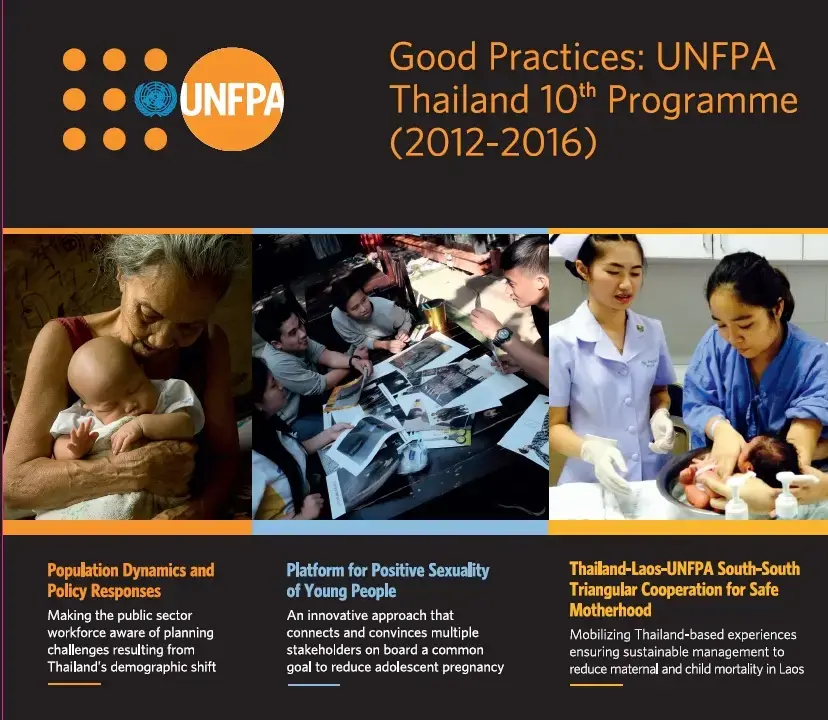UNFPA operates in a five year programme cycle. Its country programme for Thailand is in its 10th cycle spanning 2012-1016, coinciding with an interesting period for Thailand indeed as the country has seen a government change, and a landmark law titled Prevention and Solution of Adolescent Pregnancy Problem passed in early 2016 and promulgated in July. In this programme cycle, UNFPA continues its collaboration and partnership with line agencies namely Ministry of Public Health, National Economic and Social Development Board, Thailand International Cooperation Agency, among others.
In the area of youth sexual and reproductive health and rights, UNFPA strategy employs the “3Cs” approach (Create-Convince-Connect) through the key intervention on “3C4Teen Platform for Positive Sexuality of Young People.” In terms of policy response to demographic change, UNFPA along with NESDB successfully advocated for the Office of Civil Service Commission to integrate a curriculum on policy response to demographic change into its training courses for public sector workforce from leadership to new recruit levels. With this, awareness will be raised across the entire State apparatus. Last but not least, the trilateral partnership on south-to-south cooperation on the theme of safe motherhoods has expanded. The UNFPA-TICA-Bhutan partnership has matured now into a bilateral cooperation between the Thai and Bhutanese government counterparts. In this programme cycle, UNFPA, TICA and the Lao government apply the trilateral partnership model to advance the institutional capacity of midwifery education in Lao PDR.
In all three cases, partners express appreciation for UNFPA’s role in aggregating international standards and good practices which broaden their horizons as well as helping to stimulate them to adapt certain solutions to the Thai contexts. In all, UNFPA and partners have worked together to strengthen Thailand in the face of new demographic reality, where the entire population enjoys equal well-beings and quality of life.


